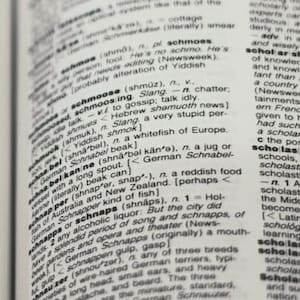dial down: Idiom Meaning and Origin
What does ‘dial down’ mean?
The idiom "dial down" means to reduce the intensity or level of something, such as an emotion, a conflict, or a problem.

Idiom Explorer
The idiom "tone down" means to reduce the intensity or loudness of something, especially language or behavior, in order to make it less offensive, aggressive, or intense.
The idiom "knock down" means to forcefully bring someone or something to the ground. It can also refer to reducing the price or value of something significantly.
The idiom "die down" means to gradually become less intense, loud, or active.
The idiom "dial back" means to reduce or lessen something, often used in the context of scaling down intensity, aggression, or speed.
The idiom "deep down" refers to one's true or hidden feelings, thoughts, or qualities. It suggests that there is an inner core, often different from one's external appearance, that truly represents who a person is.
"Cut down" is an idiom that means to reduce or decrease something, such as the amount of time, money, or resources used for a particular activity. It can also refer to eliminating or lowering the number of something, like cutting down on expenses or cutting down on sugar in one's diet.
The idiom "cry down" means to speak negatively or disparage, often in an attempt to undermine someone or something. It is typically used when someone tries to devalue or criticize another person's ideas, achievements, or reputation.
The idiom "come down to earth" means to return to reality or to stop dreaming or fantasizing.
The idiom "come down to" means to ultimately be based on or determined by a particular thing or set of circumstances. It implies that the final decision or outcome is influenced by a specific factor.
The idiom "come down" means to make a decision or judgment, usually after careful consideration or evaluation.
Decoding Social Situations
The idiom "dial down" is a familiar expression in American English that originated from the field of telecommunications and has since evolved to have a figurative meaning. The phrase is quite literal in its origin, referring to the act of adjusting or reducing the volume on a telephone or radio dial.
When someone uses the idiom "dial down," they are generally suggesting the need to decrease or lessen a particular quality or behavior. This can apply to various situations, such as toning down one's emotions, reducing the intensity of an argument or conflict, or even adopting a more relaxed approach in a competitive situation.
Examining the origin of this idiom, its original usage can be traced back to the physical dials found on telephones and radios. These analog devices allowed users to manually adjust the volume or intensity of their audio output by rotating a dial.
By dialing down, or turning the dial down, the volume would decrease, resulting in a softer or lower level of sound. This literal action eventually transcended into idiomatic use and found its place in everyday speech.
The metaphorical meaning of "dialing down" became more prevalent as technology advanced, rendering the physical act of adjusting dials obsolete. However, the idiom continued to be used, indicating a shift towards a more abstract interpretation unrelated to direct volume control.
Instead, it came to symbolize the need for individuals to manage their own intensity, emotions, or actions to avoid excesses or extreme behavior.
An example of the idiom "dial down" in use might be a scenario where two individuals are engaged in a heated debate. The mediator might instruct them to "dial down" their emotions, urging them to lower the intensity of their arguments and approach the discussion with a calmer demeanor.
By dialing down their emotions, the individuals are essentially toning down the intensity of their disagreement, allowing for a more constructive and productive conversation.
It is worth noting that the idiom "dial down" is primarily used in informal or conversational settings, rather than in highly formal or professional contexts. Its informality is rooted in its everyday origins and its subsequent passage into the linguistic landscape.
The related idiom "dial back" is similar in meaning to "dial down." When someone suggests to "dial back" something, they are expressing the need to reduce, moderate, or tone down a particular aspect.
This idiomatic expression can be used in various scenarios, such as dialing back an aggressive approach, toning down the level of excitement, or scaling back on the intensity of a project or goal.
The phrase "tone down" is another related idiom that shares the same essence as "dial down." When someone advises to "tone down" something, they are advocating for a reduction or moderation of a certain quality, behavior, or expression.
This idiom can be applied to different situations, such as toning down the use of strong language, reducing the intensity of a performance, or adopting a more subtle approach in communicating with others.
The idiom "dial down" originated from the manual volume control dials on telephones and radios, and has evolved to represent the act of reducing or moderating the intensity, force, or impact of a situation, emotion, or behavior.
It is used in informal or conversational settings to encourage individuals to find a balance and avoid excesses or extreme behavior.
The related idioms "dial back" and "tone down" carry a similar meaning and emphasize the need for reduction or moderation in different contexts.
Through these idioms, individuals are reminded of the importance of finding balance and adopting measured responses in their interactions with others and in various aspects of life.
Example usage
Examples:
- We need to dial down the volume of the music, it's too loud for the party.
- The company decided to dial down its advertising budget due to financial constraints.
- After the argument escalated, Lucy suggested everyone take a deep breath and dial down the tension.
An analysis of the idiom "dial down":
The idiom "dial down" is often used in a variety of contexts to indicate reducing or lowering the intensity, volume, or level of something. The idiom derives from the concept of adjusting a dial to a lower setting, similar to turning down the volume on a radio or TV.
In the examples provided, "dial down" is used in different situations:
- In the first example, it is used to refer to reducing the volume of music that is too loud for a party.
- The second example shows how a company decides to decrease its advertising budget, signifying a reduction in intensity or spending.
- Lastly, "dial down" is used metaphorically in the third example to suggest lowering the tension during an argument or conflict.
Overall, the idiom "dial down" is commonly used to express the act of decreasing or lessening the level, intensity, or impact of something, both in a literal and figurative sense.
More "Colloquial" idioms

